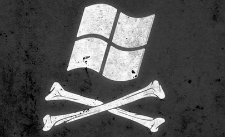Microsoft Ditches Anti-Piracy Partner After Embarrassing DMCA Takedowns
- September 27, 2013
 Over
the past year the number of DMCA takedown requests sent out by
copyright holders has increased dramatically, and so have inaccurate
notices targeting legitimate content.
Over
the past year the number of DMCA takedown requests sent out by
copyright holders has increased dramatically, and so have inaccurate
notices targeting legitimate content.Microsoft has been one of the most active notice senders and over the past year alone has asked Google to remove more than 10 million infringing URLs from its indexes.
The software giant has also developed a reputation for sending a lot of false notices, most of which have been sent through the French company LeakID.
This morning we again reported on some rather embarrassing takedown notices, which asked for the removal of Microsoft’s own website, its Wikipedia entry and an Open Source project. If that wasn’t bad enough, Microsoft also claimed ownership of a porn video.
It turns out this was the final straw for the company. Microsoft has just announced that it has decided to stop working with LeakID effective immediately.
“Microsoft is committed to ensuring that enforcement measures are appropriate and completely accurate. We are investigating the circumstances of this takedown and have instructed the vendor that it is no longer authorized to send notices on our behalf,” a Microsoft spokesman just informed TorrentFreak.
This makes Microsoft the first company to publicly cut its ties with an anti-piracy company for making too many embarrassing mistakes.
Microsoft’s troubles with LeakID started last year when a DMCA notice ordered Google to remove legitimate webpages from AMC Theatres, BBC, Buzzfeed, CNN, HuffPo, TechCrunch, RealClearPolitics, Rotten Tomatoes, ScienceDirect, Washington Post, Wikipedia and even the U.S. Government.
In another notice Microsoft asked Google to remove a Spotify.com URL and on several occasions they even asked Google to censor their own search engine Bing.
Hats off to Microsoft for taking a stand on this matter in public. For us it probably means that we’ll have fewer mistakes to point out in the future, but it also shows that all our previous digging expeditions have not been in vain.



No comments:
Post a Comment